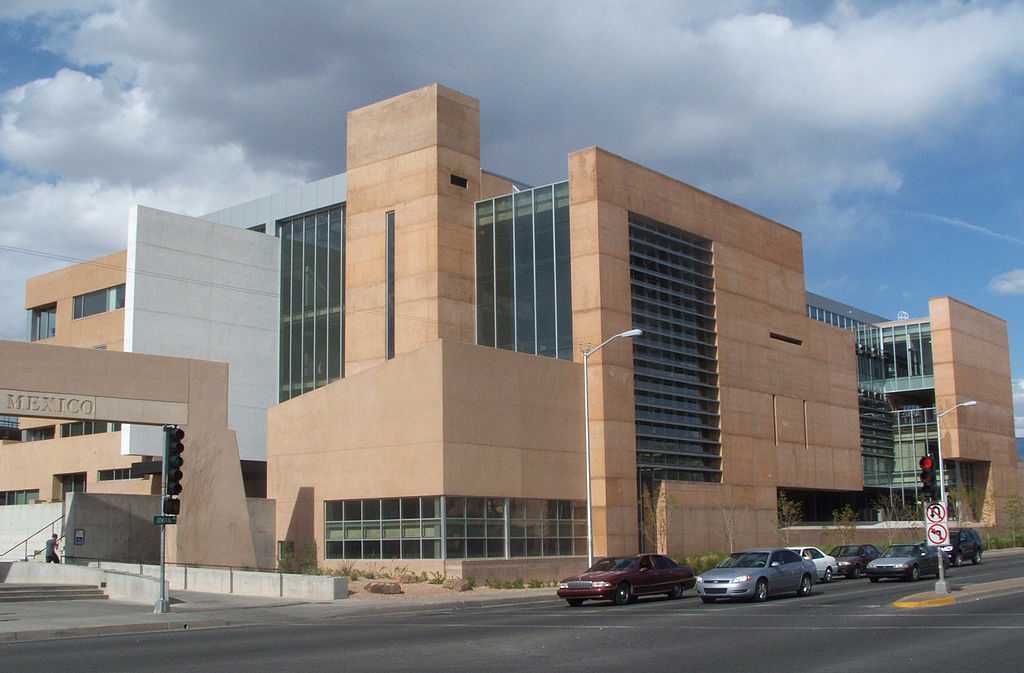 WASHINGTON — A Congressional panel sent a criminal referral to the attorney general of New Mexico this past week as it outlined concerns over the University of New Mexico’s work with a local abortion facility, including the transfer of the bodily organs of aborted babies for research, which is a violation of state law.
WASHINGTON — A Congressional panel sent a criminal referral to the attorney general of New Mexico this past week as it outlined concerns over the University of New Mexico’s work with a local abortion facility, including the transfer of the bodily organs of aborted babies for research, which is a violation of state law.
The Congressional Select Panel on Infant Lives discovered the information as part of its investigation into how abortion facilities nationwide harvest and transfer the remains of aborted babies. In her letter, Chairman Marsha Blackburn (R-Tenn.) notes that federal law requires that safeguards be in place to prevent “too close of a relationship” between abortion facilities and researchers.
However, during the course of the investigation, it was found that the University of New Mexico (UNM) and the abortion facility Southwestern Women’s Options (SWWO) had worked together closely to intently further abortion in the state.
“Through its investigation, the panel has discovered that personnel within UNM’s hospital and medical school have aggressively engaged in expanding abortion in New Mexico through the offices, personnel and resources of UNM,” Blackburn’s letter states.
The panel found that the university not only worked to help train new abortionists, but that it also provided resident physicians to perform abortions at Southwestern Women’s Options, as well as volunteer staffers. Southwestern Women’s Options, which performs abortions in all three trimesters, additionally provided the body parts of aborted babies to UNM throughout the year.
“Laboratory notes produced to the panel reveal that a UNMHSC employee has collected aborted infant tissue collected from SWWO an average of 39 times a year,” the accompanying report outlines. “Organs harvested include brains/head, heart, lung, eyes/retina, kidney, spleen, adrenal gland, intestines, bone marrow, and stomach.”
“The notes contain information on aborted infants whose gestations ranged from approximately 11.5 to 30.5 weeks, with many in the 14 to 18 week range. At least 20 aborted infants were past 20 weeks gestation,” it continues. “The infants described included infants with ‘clubbed feet,’ aborted at 16 weeks gestation, a 22.5 week aborted infant with Down Syndrome, gestation, 20 week aborted twins with intact brains, a 25.3 week aborted female infant with an orofacial cleft, and a 30.5 week aborted ‘intact’ infant.”
The report additionally disclosed that a university “lab tech wrote in May 2012 that someone from UNMHSC ‘asked [the] clinic for digoxin treated tissue 24-28 weeks for methylation study and because [redacted] wants whole, fixed brains to dissect w/ summer camp students.'”
Blackburn believes that not only did the entities have too close of a working relationship, but they also may have been breaking the law through their transfer of baby body parts.
“[D]ocumentation obtained by the panel in the course of its investigation reflects that the transfer of fetal tissue from SWWO to UNM for research purposes is a systematic violation of New Mexico’s … Spradling Act,” the letter states. “These violations occurred as UNM personnel procured fetal tissue from patients at Southwestern Women’s Options for research by UNM entities.”
The cited law prohibits gifting the organs of a child whose life has been ended through abortion.
Blackburn has requested that New Mexico Attorney General Hector Balderas investigate the findings, as well as whether the entities violated 42 U.S.C. § 289g-2, a federal law that prohibits organizations from being paid for the exchange of baby body parts.
As previously reported, the Congressional Select Panel on Infant Lives additionally called for an investigation earlier this month into the abortion giant Planned Parenthood and baby body parts buyer StemExpress as new evidence has surfaced that allegedly suggests the entities violated patient privacy laws.
Blackburn wrote in a letter to the U.S. Department of Health and Human Services (HHS) that while HIPPA requires that all identifying health information be kept private, Planned Parenthood granted StemExpress access to patient records to obtain consent for harvesting organs, which is a violation of federal rules.
Become a Christian News Network Supporter...


